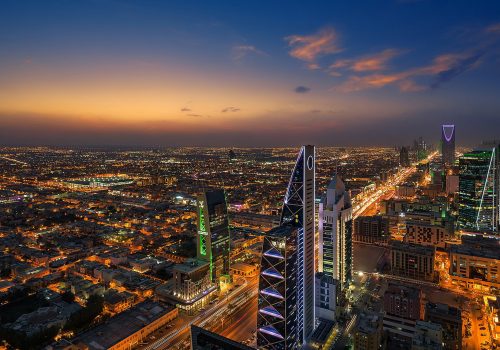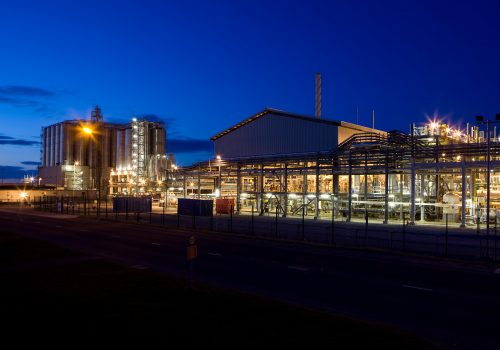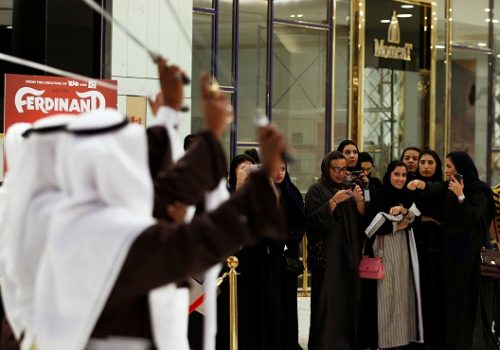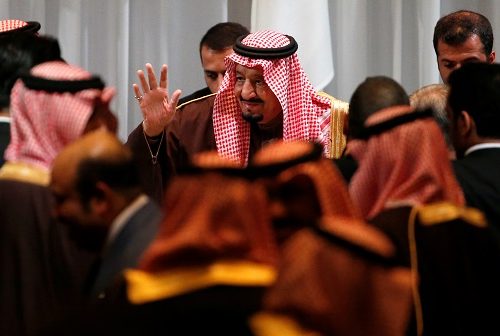When global oil prices collapsed in summer 2014, Saudi Arabia faced a daunting economic challenge. King Salman, who ascended to the throne in early 2015, and his son Prince Mohammed bin Salman responded with an ambitious economic and social reform plan, Saudi Vision 2030, which was unveiled in 2016 and designed to reduce the country’s dependence on oil by facilitating the emergence of a robust private sector.
Saudi Arabia set 2020 as a deadline to evaluate the Vision with benchmark goals. In an unfortunate coincidence, the coronavirus pandemic and oil price war between Saudi Arabia and Russia ushered in another economic crisis this year, with plummeting oil prices compounded by the disruption of global trade and financial markets, a freeze on industries like tourism, and lost productivity in the government and private sectors. These economic and health crises may spell an uncertain future for the Saudi plan, even while underscoring the importance of Saudi Arabia succeeding in its economic transformation.
On Wednesday, June 17, from 10:30 a.m. to 12:00 p.m. we hosted the launch of a new Rafik Hariri Center report, “Assessing Saudi Vision 2030: A 2020 Review,” by nonresident senior fellow Stephen Grand and associate director Katherine Wolff.
Their findings were challenged, expanded upon, and evaluated in the context of today’s “new normal” by a panel of experts listed below.
Speakers
Dr. Yasmine Farouk
Visiting Fellow, Middle East Program,
Carnegie Endowment for International Peace
Dr. Stephen Grand
Nonresident Senior Fellow, Rafik Hariri Center for the Middle East,
Atlantic Council
Ms. Sara Lechtenberg-Kasten
Research Fellow, King Abdullah Petroleum Studies and Research Center (KAPSARC)
Mr. Fahad Nazer
Spokesperson, Embassy of the Kingdom of Saudi Arabia to the United States
Dr. Mark Thompson
Senior Associate Fellow and Head of the Socioeconomic Unit, King Faisal Center for Research and Islamic Studies
Ms. Katherine Wolff
Associate Director, Scowcroft Middle East Security Initiative, Atlantic Council
Read the report
Related content

Through our Rafik Hariri Center for the Middle East and Scowcroft Middle East Security Initiative, the Atlantic Council works with allies and partners in Europe and the wider Middle East to protect US interests, build peace and security, and unlock the human potential of the region.



